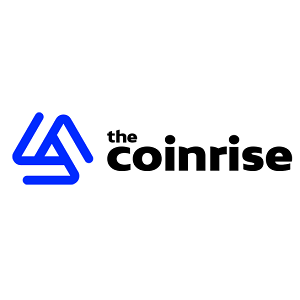Unlocking South Korea’s Crypto Market: A Revolutionary Opportunity for Foreign Investors
8 min read
BitcoinWorld Unlocking South Korea’s Crypto Market: A Revolutionary Opportunity for Foreign Investors A seismic shift is on the horizon for the global cryptocurrency landscape, as whispers turn into calls for South Korea to open its vibrant South Korea crypto market to foreign investors. For years, this dynamic and technologically advanced nation has maintained a relatively closed stance on foreign participation in its digital asset ecosystem. However, momentum is now building, driven by a growing consensus among analysts and industry leaders that such a move could unlock unprecedented benefits, not just for the market itself but for the nation’s broader economic stability and fiscal health. Are we on the cusp of a revolutionary change that could redefine the accessibility and global standing of one of Asia’s most significant crypto hubs? Why is Opening the South Korea Crypto Market So Significant? The prospect of opening the South Korea crypto market to foreign investors is generating considerable excitement, and for good reason. Analysts, as reported by Herald Business, highlight several compelling advantages that extend far beyond mere market expansion. This isn’t just about more participants; it’s about fundamentally strengthening the market’s core and supporting the nation’s economic future. Expanded Access and Liquidity: Currently, foreign residents face significant hurdles in participating directly in the local crypto exchanges. Opening the market would dramatically expand the investor base, introducing fresh capital and increasing liquidity. Greater liquidity often leads to more stable prices and a more robust trading environment, benefiting all participants. Enhanced Market Stability: A diversified investor base, including seasoned foreign participants, can help mitigate volatility. When the market relies heavily on a single demographic, it can be more susceptible to localized sentiment swings. Broader participation introduces varied perspectives and investment strategies, contributing to a more mature and resilient market. Bolstering the Nation’s Fiscal Foundation: As digital assets become an increasingly integral part of the global economy, nations are seeking ways to integrate them responsibly. By opening its market, South Korea could generate significant tax revenues from foreign trading activities and investments. This new revenue stream could be channeled into public services, infrastructure development, or even further support for innovation within the blockchain sector, thereby strengthening the nation’s fiscal health. Global Leadership and Innovation: South Korea has long been a technological powerhouse and a significant player in the crypto space. By embracing foreign investment, it could solidify its position as a global leader in digital finance, attracting more talent, fostering innovation, and driving the adoption of cutting-edge blockchain technologies. How Will the South Korea Crypto Market Ensure Security and Compliance? The move to open the South Korea crypto market is not being approached haphazardly. Industry voices are strongly advocating for an orderly and phased approach, prioritizing robust compliance and security measures. The primary concern is to ensure that while access expands, the integrity of the financial system remains uncompromised. This meticulous approach is crucial for maintaining trust and preventing illicit activities. Key to this orderly expansion are two fundamental pillars of financial regulation: Know-Your-Customer (KYC) Protocols: These are standard procedures used by financial institutions to verify the identity of their clients. For foreign investors, this would involve submitting official identification documents, proof of address, and other relevant information. Robust KYC processes help prevent identity theft, fraud, and the creation of anonymous accounts that could be used for illicit purposes. Anti-Money Laundering (AML) Regulations: AML protocols are designed to detect and prevent the flow of illegally obtained funds through the financial system. For the crypto market, this means monitoring transactions for suspicious patterns, reporting unusual activities, and ensuring that funds originate from legitimate sources. Implementing stringent AML measures is paramount to aligning with international financial standards and protecting the market from criminal exploitation. The initial phase of opening the market is proposed to focus on the approximately 2.46 million foreign residents already living in Korea. This targeted approach allows for a controlled rollout, where existing identification and residency verification systems can be leveraged, ensuring a smoother transition while perfecting the compliance frameworks before a broader international rollout. This pragmatic strategy demonstrates a commitment to both expansion and responsible growth within the South Korea crypto market . What Are the Potential Challenges and Opportunities in the South Korea Crypto Market ? While the benefits are clear, opening the South Korea crypto market to foreign investors also presents its share of challenges and opportunities that warrant careful consideration. Navigating these complexities will be key to the success of this initiative. Potential Challenges: Regulatory Harmonization: Integrating foreign investors means aligning South Korean regulations with international standards, which can be complex and time-consuming. Differences in tax laws, reporting requirements, and consumer protection frameworks need to be addressed to ensure a seamless experience for global participants. Market Volatility and Education: An influx of new investors, especially those less familiar with the specific dynamics of the Korean market, could initially lead to increased volatility. Adequate educational resources and clear communication about market risks will be crucial. Technological Infrastructure: While South Korea boasts advanced infrastructure, scaling systems to handle a significantly larger and more diverse user base, particularly across different time zones and languages, will require robust technological upgrades and continuous maintenance. Data Privacy and Security: Handling sensitive personal and financial data of millions of new foreign investors will necessitate world-class cybersecurity measures and strict adherence to global data privacy regulations to prevent breaches and maintain trust. Unprecedented Opportunities: Increased Global Visibility: Opening the market will significantly elevate South Korea’s profile on the global crypto stage, attracting more international attention, partnerships, and investment in its burgeoning blockchain ecosystem. Boost for Local Projects and Innovation: Domestic blockchain projects and startups will gain access to a wider pool of capital and expertise, fostering innovation and accelerating the development of new applications and services within the South Korea crypto market . Competitive Advantage: By proactively embracing foreign investment, South Korea can position itself as a progressive and attractive destination for digital asset businesses and investors, potentially gaining a competitive edge over other nations with more restrictive policies. Economic Diversification: Further integrating the crypto market into the national economy can contribute to diversification, reducing reliance on traditional industries and fostering growth in the digital sector. What’s Next for Foreign Investors in the South Korea Crypto Market ? For foreign investors eyeing the burgeoning opportunities in the South Korea crypto market , staying informed and prepared is paramount. While the exact timeline and detailed regulations are still evolving, the growing momentum suggests that significant changes are on the horizon. Here are some actionable insights: Monitor Regulatory Developments: Keep a close watch on announcements from South Korean financial regulators (e.g., Financial Services Commission) and the National Assembly. Official statements will provide clarity on the phased opening, specific eligibility criteria, and operational guidelines for foreign investors. Understand Compliance Requirements: Familiarize yourself with potential KYC/AML requirements. While the specifics are yet to be finalized, preparing necessary identification documents and understanding transaction reporting obligations will be beneficial. Research Local Exchanges: As the market opens, local exchanges will likely be the primary gateways for foreign participation. Research their offerings, security measures, and fee structures. Understanding their current operational frameworks can provide insights into what to expect. Engage with Industry Experts: Follow analyses from reputable financial institutions, crypto research firms, and legal experts specializing in Korean financial regulations. Their insights can offer valuable perspectives on market entry strategies and potential pitfalls. Consider the Phased Approach: Remember the initial focus on foreign residents. If you are a foreign resident in Korea, this could be your first opportunity to participate directly and contribute to the market’s stability and growth. This progressive opening represents a significant stride towards a more inclusive and globally integrated digital asset economy. It underscores South Korea’s commitment to adapting to the evolving financial landscape while upholding rigorous standards of security and compliance. Conclusion: The calls to open South Korea’s crypto market to foreign investors signal a pivotal moment for both the nation and the global digital asset space. This strategic move promises not only to inject vital liquidity and enhance market stability but also to significantly bolster South Korea’s fiscal foundation and cement its status as a forward-thinking leader in the digital economy. While challenges related to regulatory harmonization and market education exist, the benefits of expanded access, increased innovation, and heightened global visibility present an undeniable opportunity. With a clear focus on orderly implementation through robust KYC and AML protocols, starting with foreign residents, South Korea is setting a precedent for responsible yet revolutionary market expansion. Foreign investors should remain vigilant and prepared, as this transformative shift is poised to unlock a wealth of new possibilities in one of Asia’s most dynamic crypto markets. Frequently Asked Questions (FAQs) Q1: Who is currently restricted from investing in the South Korea crypto market? A1: Currently, direct participation by non-resident foreign investors in South Korean crypto exchanges is highly restricted or practically impossible due to strict identification and residency requirements. The proposed changes aim to ease these restrictions, potentially starting with foreign residents in Korea. Q2: What are KYC and AML protocols, and why are they important for foreign investors? A2: KYC (Know Your Customer) protocols involve verifying a user’s identity to prevent fraud and illicit activities. AML (Anti-Money Laundering) regulations aim to prevent funds from illegal sources from entering the financial system. For foreign investors, these protocols ensure the legitimacy of transactions and help maintain the integrity and security of the South Korea crypto market , aligning it with global financial standards. Q3: How might opening the market impact the prices of cryptocurrencies traded in South Korea? A3: An influx of foreign capital could increase liquidity and demand, potentially leading to increased trading volumes and, in some cases, price appreciation for certain digital assets. However, market dynamics are complex, and prices are influenced by many factors, so volatility may also occur initially. Q4: When is the South Korea crypto market expected to fully open to all foreign investors? A4: While momentum is building, a definitive timeline for a full opening to all foreign investors has not been announced. The proposed strategy suggests an orderly, phased approach, likely beginning with foreign residents already living in Korea, before considering broader international access. Investors should monitor official government and regulatory announcements for specific timelines. Q5: What benefits can foreign investors expect from accessing the South Korea crypto market? A5: Foreign investors could gain access to a highly active and technologically advanced crypto ecosystem, participate in a market with significant trading volumes, and potentially invest in local South Korean blockchain projects. It also offers diversification opportunities within their global crypto portfolios. Q6: Are there any specific types of cryptocurrencies that might be more attractive to foreign investors in South Korea? A6: While not explicitly stated, foreign investors might find interest in major cryptocurrencies like Bitcoin and Ethereum, which are globally traded. Additionally, they might explore locally popular altcoins or projects developed by South Korean blockchain companies, once access is granted and sufficient information is available. Share Your Thoughts and Spread the Word! What are your thoughts on South Korea’s potential move to open its crypto market to foreign investors? Do you believe this will be a game-changer for the global crypto landscape? Share this article on your social media channels and join the conversation! Your insights contribute to a more informed and dynamic discussion about the future of digital finance. To learn more about the latest crypto market trends, explore our article on key developments shaping the global crypto market in terms of institutional adoption . This post Unlocking South Korea’s Crypto Market: A Revolutionary Opportunity for Foreign Investors first appeared on BitcoinWorld and is written by Editorial Team

Source: Bitcoin World



